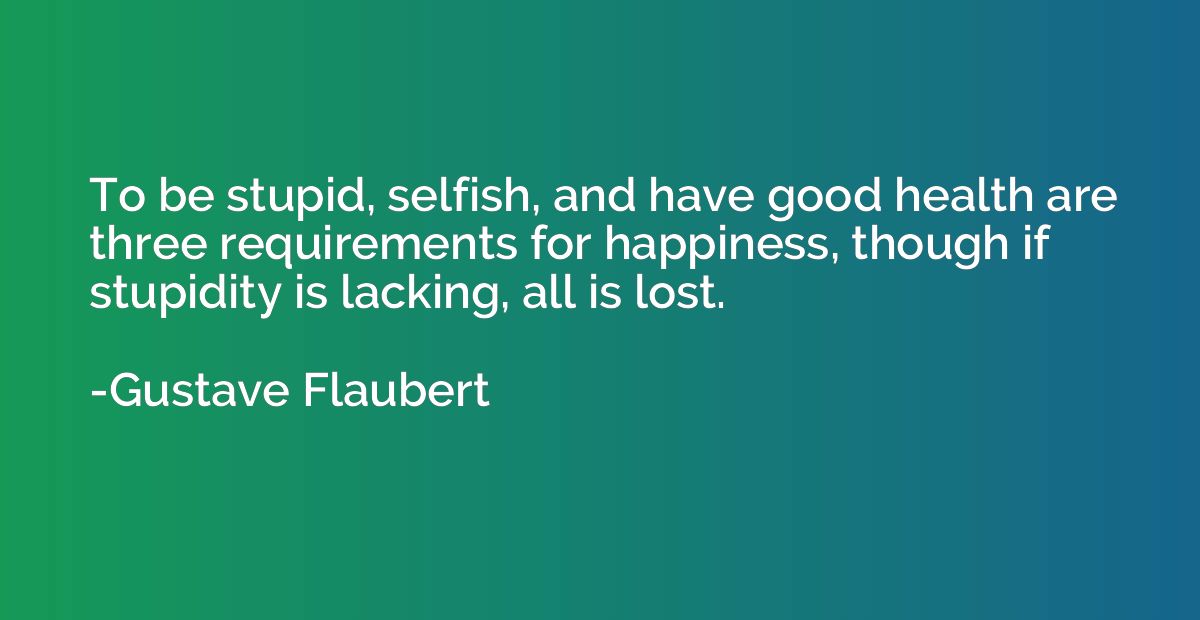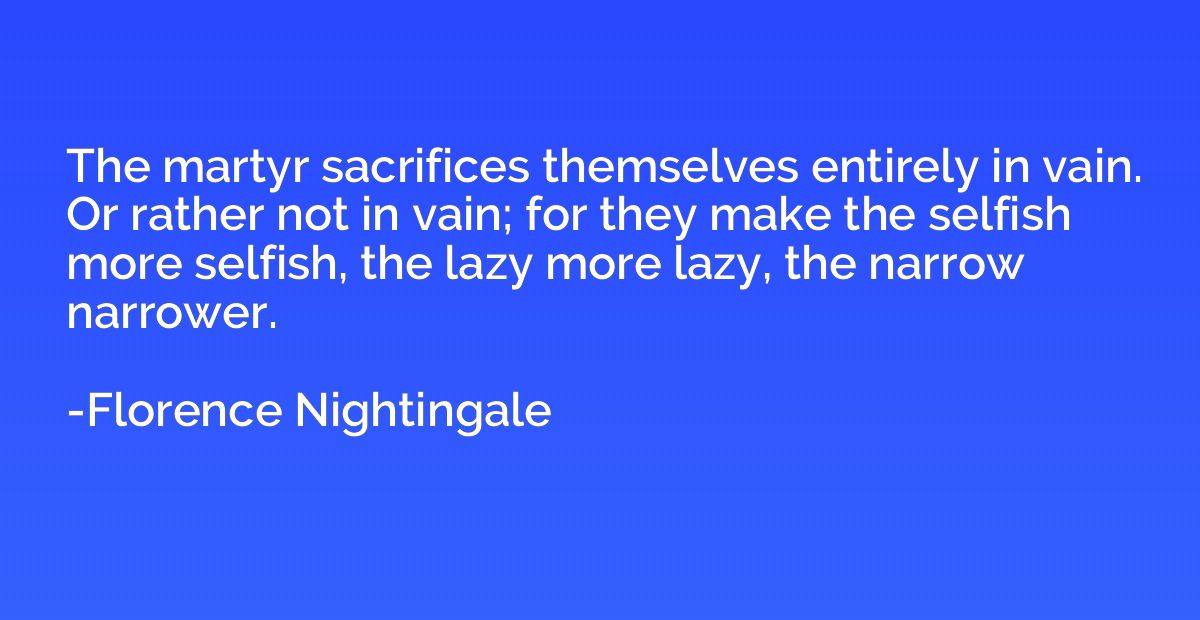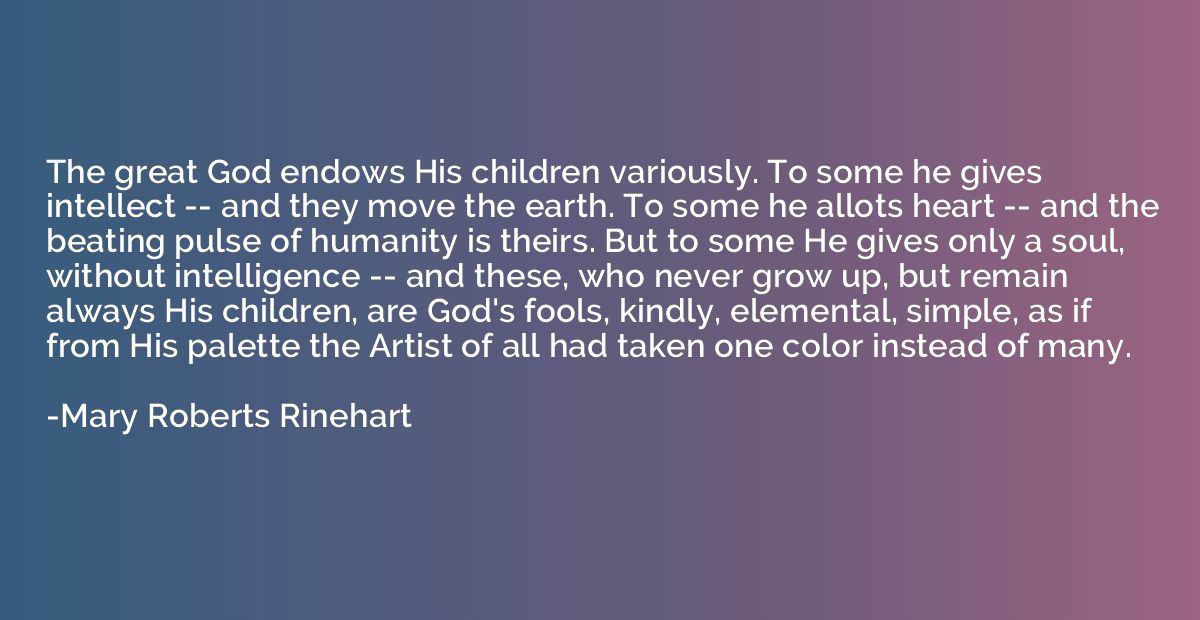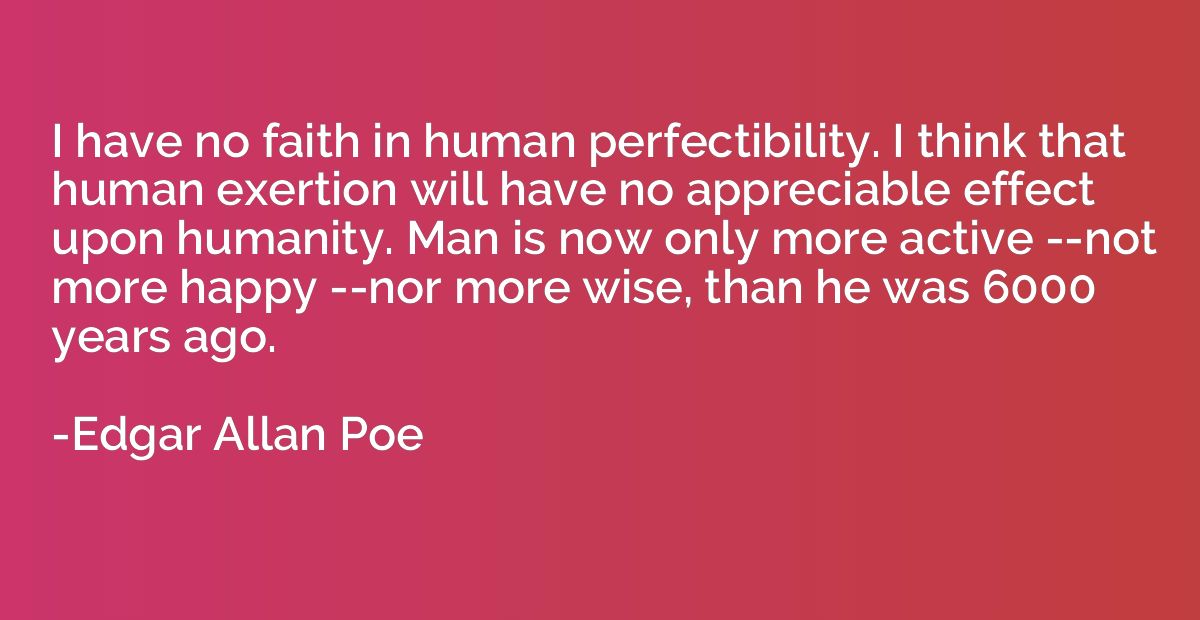Quote by Neil Gaiman
Night was spreading slowly around the spinning Earth. It should have been full of pinpricks of light. It was not. There were five billion people down there. What was going to happen soon would make barbarism look like a picnic - hot, nasty, and eventually given over to the ants.
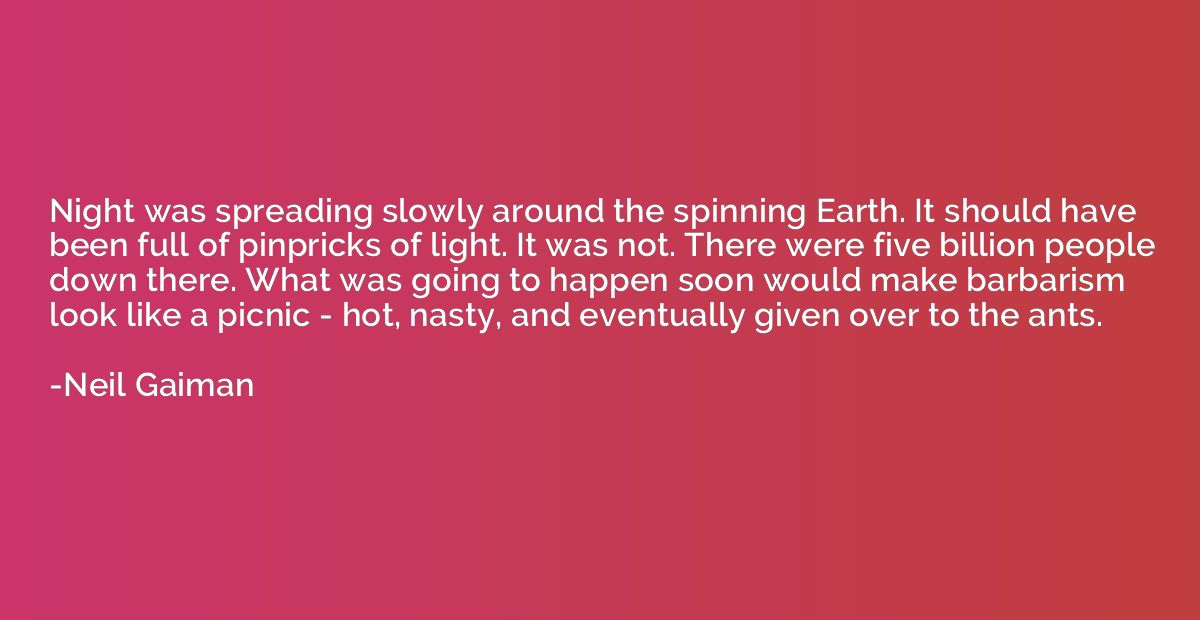
Summary
This quote highlights the contrast between the vast population of the world and the impending doom that is on the horizon. The mention of nightfall usually being illuminated by city lights symbolizes order and prosperity. However, the absence of lights suggests a bleak future, emphasizing the magnitude of a forthcoming catastrophic event. The comparison of the impending disaster to "barbarism" indicates that it will be far more destructive and gruesome. The mention of the picnic being eventually given over to ants evokes the idea that small creatures or insignificance will eventually inherit the aftermath of the impending chaos.
Topics
Health
By Neil Gaiman




